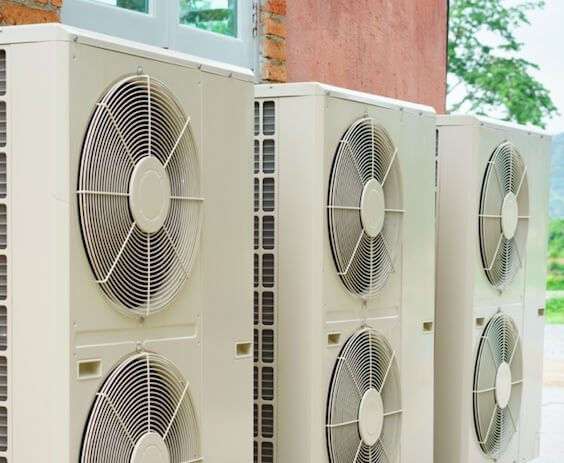How to winterize your HVAC system

If you want to avoid an expensive repair bill this winter, it’s important to winterize your HVAC system. Here are some tips on how to do so:
1. Schedule a professional tune-up. This will ensure that your system is running efficiently and identify any potential problems.
2. Clean the outdoor unit. Remove any debris that has accumulated around the unit, such as leaves and sticks.
3. Cover the outdoor unit. This will protect it from the elements and help extend its life.
4. Change your filters. Dirty filters can restrict airflow and cause your system to work harder than necessary.
5. Check your ductwork. Leaks in your ductwork can cause your home to lose heat. By following these tips, you can help prevent costly repairs and keep your home comfortable all winter long.
How to Prepare Your HVAC System for Winter
As the weather outside begins to cool down, it’s time to start preparing your home’s HVAC system for winter. Taking a few simple steps now can help prevent problems and keep your home comfortable all season long. First, have your furnace serviced by a qualified technician. This will ensure that it’s in good working order and can handle the demands of the winter months. Next, take a look at your insulation and make sure it’s adequate. If not, consider adding more to help keep the heat in and the cold out. Finally, clean or replace your air filter. A clean filter will help your furnace run more efficiently and can also improve indoor air quality. By following these simple tips, you can help your HVAC system run smoothly all winter long.
Get Your HVAC System Ready for Cold Weather
As the weather starts to cool down, it’s time to start thinking about preparing your home’s heating, ventilation and air conditioning (HVAC) system for the colder months ahead. Taking some simple steps now can help you avoid costly repairs or replacements later and keep your family comfortable all winter long.
1. Replace your air filter. One of the most important things you can do for your HVAC system is to regularly replace the air filter. A dirty air filter not only reduces the efficiency of your system, but can also lead to premature wear and tear. For optimal performance, check your air filter every month and replace it as needed.
2. Schedule a tune-up. It’s also a good idea to have a professional tune-up your HVAC system before the start of the heating season. A qualified technician will clean and inspect all of the key components of your system, including the furnace, blower motor and ductwork. This will help ensure that your system is operating at peak efficiency and catches any potential problems before they cause major damage.
3. Insulate your ductwork. If your home has ductwork, it’s important to make sure it’s properly insulated. Not only will this help prevent heat loss, but it can also reduce noise from the ductwork and make your entire HVAC system run more efficiently.
4. Seal any gaps or leaks. Gaps or leaks in your home’s envelope (the walls, ceilings, floors and doors that separate the interior of your home from the outdoors) can also lead to heating and cooling losses. Take a walk around your home and look for any places where outside air could be coming in. These can often be found around doors and windows, electrical outlets, vent pipes and ductwork. Use caulk or weatherstripping to seal any gaps or leaks you find.
5. Invest in a programmable thermostat. A programmable thermostat can help you save money on your energy bills by automatically adjusting the temperature in your home when you’re away or asleep. Many models can even be controlled remotely via a smartphone or tablet, making it easy to adjust the temperature no matter where you are. By following these simple tips, you can help keep your HVAC system running smoothly all winter long.
How to Winterize Your HVAC Unit
It’s that time of year again. The days are getting shorter, the weather is cooling down, and your heating bills are on the rise. That can only mean one thing: it’s time to winterize your HVAC unit. Taking a few simple steps to winterize your HVAC unit can help it run more efficiently and prevent costly repairs down the road. Here’s what you need to do:
1. Check your unit’s filters and replace them if necessary. Dirty filters can restrict air flow and cause your unit to work harder than it needs to.
2. Inspect your unit’s coils and clean them if necessary. Dirty coils can also restrict air flow and reduce your unit’s efficiency.
3. Lubricate all moving parts. This will help reduce friction and wear on your unit’s components.
4. Check your unit’s thermostat and make sure it is set to “heat” mode.
5. Inspect your unit’s ductwork and seal any leaks. Leaky ductwork can waste a lot of energy and cause your heating bills to skyrocket. Following these simple steps will help ensure that your HVAC unit is ready for the winter months ahead.
How to Protect Your HVAC System During the Winter
As the weather starts to cool down and the days get shorter, your home’s heating, ventilation and air conditioning (HVAC) system has to work harder to maintain a comfortable indoor temperature. This increased use can put extra strain on your HVAC system, which is why it’s important to take some steps to protect it during the winter months. Here are four tips to help keep your HVAC system running smoothly all winter long:
1. Schedule a tune-up. One of the best ways to protect your HVAC system is to have it professionally serviced before the start of the winter season. This tune-up should include a thorough inspection of all the system’s components, as well as a cleaning of the furnace and ductwork.
2. Replace your air filter. A clean air filter is essential for keeping your HVAC system running efficiently. Be sure to check your air filter monthly and replace it as needed.
3. Keep your thermostat at a consistent temperature. Avoid big swings in temperature by keeping your thermostat set to a comfortable level and avoiding drastic changes. Doing this will help reduce wear and tear on your HVAC system.
4. Address any drafts in your home. Drafty windows and doors can let in cold air, making your HVAC system work harder than necessary. Seal any gaps around windows and doors with weather stripping or caulk to help keep the warm air inside your home. By following these simple tips, you can help extend the life of your HVAC system and keep it running smoothly all winter long.
How to Keep Your HVAC System Running Efficiently This Winter
When it comes to your HVAC system, you want it to be running as efficiently as possible – especially during the winter months. There are a few things you can do to ensure that your system is running at its best. First, make sure that you change your air filter regularly. A clogged air filter can make your system work harder than it needs to, which will use more energy and lead to higher utility bills. Second, keep your vents and registers clear of debris. This includes dust, pet hair, and anything else that might restrict airflow. Third, have your system serviced by a professional at least once a year. This will ensure that all the parts are working properly and that there are no hidden issues that could cause problems down the road. By following these simple tips, you can keep your HVAC system running efficiently all winter long.
How to Save Money on Your Heating Bill This Winter
When it comes to saving money, few things are as important as reducing your energy costs. And when winter rolls around, your heating bill is likely one of the first places you turn your attention to. Fortunately, there are a number of different ways that you can save money on your heating bill this winter. Here are just a few tips to get you started:
1. Get a programmable thermostat. One of the simplest and most effective ways to reduce your energy costs is to install a programmable thermostat. With a programmable thermostat, you can set specific temperatures for different times of the day and night, which means your home will be heated only when you need it to be.
2. Don’t heat unused rooms. If you have rooms in your home that you don’t use often, there’s no need to waste energy heating them. Simply close the doors to these rooms and keep the heat turned down (or off altogether).
3. Seal up cracks and gaps. One of the biggest sources of wasted energy in homes is air leaks. If your home has cracks and gaps around doors and windows, heat can escape, which drives up your energy costs. To combat this, seal up any cracks and gaps with weather stripping or caulk. 4. Add insulation. Another way to reduce heat loss is to add insulation to your home. This is especially important in attics, basements, and crawl spaces. By adding insulation, you can keep heat from escaping, which will lower your energy costs.
5. Use window treatments. Window treatments can also be used to reduce heat loss. In particular, heavy curtains or blinds can block out drafts and help keep heat from escaping through your windows.
6. Lower the temperature. One of the easiest ways to reduce your energy costs is to simply lower the temperature on your thermostat. For every degree you lower the temperature, you can save up to 5% on your energy bill. By following these tips, you can easily save money on your heating bill this winter. So, don’t wait – start saving today!



